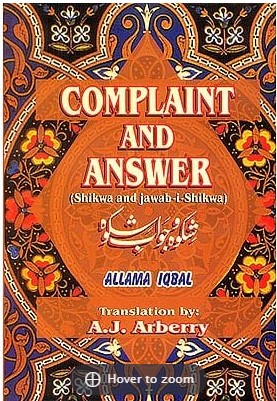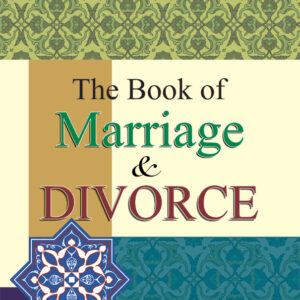he Shikwa and the Jawab-i-Shikwa, of which a new verse translation is offered in the following pages, are among the most popular of lqbal’s poems; they are deservedly celebrated, for they were among the first to bring their author fame as an advocate of Islamic reform and rebirth. The date of their composition can be fixed very accurately by a reference to contemporary events contained in the second of them; when Iqbal wrote-“Now the onslaught of the Bulgar sounds the trumpet of alarm” he was commemorating the invasion of Turkey by Bulgaria in the late autumn of 1912, an attack which threatened at one time to penetrate as far as Constantinople, the capital of the Ottoman Empire and the last home of the Caliphate. These poems were therefore composed four years after Iqbal’s return from Europe. They mark the beginning of that remarkable career as philosopher and poet which brought Iqbal ever-increasing renown, until long before his death in 1938 he was recognized as the leading thinker of Islam in India and the greatest figure in Urdu literature. It is all the more interesting to find him adumbrating in these early pieces that theory of Self hood (Khudi) and Selflessness (Bekhudi) which later played such an important part in his religious and political philosophy.
The central theme of both poems is the decay of Islam from its former greatness, and the measures to be adapted if it was to re-establish its authority and regain its vitality. The subject was, of course, no new one; ever since the decline and final extinction of the Mughul Empire, Muslims in India had been searching their minds and their consciences for the explanation of so lamentable a disaster. Nor were Indian Muslims alone in deploring the seeming collapse of Islamic civilization; their coreligionists further West, from Persia to Morocco, had been occupied with the same self-examination. But in these two poems Iqbal stated the problem in singularly arresting directness; the literary form chosen for its exposition, a dialogue between the poet, as a spoke .an for Muslims the world over, and God- this dr. matic presentation of the common dilemma made an immediate and compelling appeal to Iqbal’s public, an appeal moreover which has lost nothing of its force in the intervening years.






Reviews
There are no reviews yet.